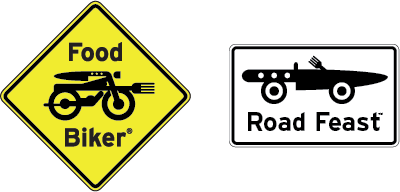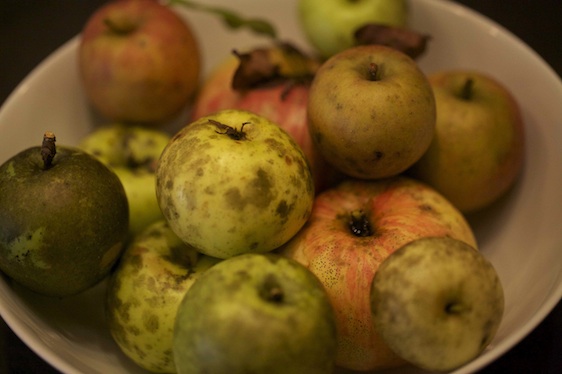These are not “usufructs.” There is no fruit called “Usufruct.”
However, “usufruct” is a term that originates from the terms “use” and “fruits,” referring in this case to “the legal right of using and enjoying the fruits or profits of something belonging to another.”
These are a bunch of apples that were picked during a walk in Berkshire County, MA. They’re not pretty, and odds are you’d miss their parent apple trees if you weren’t slowly strolling by and noticing all the apples littering the ground under the tree.
These are no carefully cultivated apples in an orchard. Think of these apples as nearly wild and forgotten about, likely varieties from a time long ago. Frankly, these are likely “heirloom” apple varieties, akin to other “heirloom” produce.
After all, these are forgotten trees, that people hardly know they exist anymore on their land. Surely, 100 years ago they were planted by farmers, but were forgotten once the farms were broken up and sold off to build lots and houses on them.
But what do these varieties taste like? Some were a fantastic balance of sweet and tart. One variety actually tasted like a pear. Others were “spitters,” which meant that they were so tart or unpalatable, that you quite literally had to spit them out. However, any of these apples would ultimately make for great hard cider.
The fun thing is, if you just snag one or two along your hike, you eventually wind up with a bunch to bring hime and nobody knows or cares. That’s the joy of “usufruct.” However, one shouldn’t be a hog and just swipe everything. Somehow, that violates the whole spirit of usufruct. Plus, leave the icky ones on the ground for the local wildlife.
So the next time you go for a walk or a hike, keep your eyes peeled for forgotten apples. These made for delicious snacks along the hike, paired beautifully with cheeses and rosé wine, and the rest made for an incredible apple crisp the next week.

